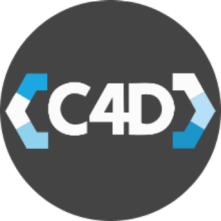|
Inequality and poverty, rapid social change,
Policies that increase inequality of opportunity
Gender inequality, violent discrimination against minorities
Failure of security services to protect people from lethal use of force (predatory policing, corruption, impunity),
Higher tolerance of interpersonal violence in post-conflict countries
|

|
Policies for improved business climate, incentives investment in marginalized areas
Improved access to justice
-
Case management for victims (legal aid) and security staff (investigators)
-
Tangible reduction in impunity (independent corruption watchdogs, special oversight)
-
Drug courts and treatment
|
|
Inequality and poverty, rapid social change,
Policies that increase inequality of opportunity
Gender inequality, violent discrimination against minorities
Failure of security services to protect people from lethal use of force (predatory policing, corruption, impunity),
Higher tolerance of interpersonal violence in post-conflict countries
|
Employability chains’: temporary employment plus soft skills and CBT leading to apprenticeships and microfinance
Evidence-focused changes to physical safety in schools and learning climate
Hot spot’ slum upgrading (CPTED principles) and complementary social interventions
Community policing focusing on hot-spots and localized problems, trust-building
Combination of focused deterrence and “street-worker” / interrupter F2F interventions
|
|
Marital discord, poor parenting practices, violent parental conflict,
Low socioeconomic household status,
Lack of positive role models,
Delinquent peers or friends who engage in violence
|
Parenting programs
Family-based therapy
Family- and school-based disruption of gender stereotypes and violent norms
Social programs highlighting and providing structured access to positive role models
Positive peer association (sports, after-school activities) with community oversight of safety
|
|
Biology (exposure to alcohol or substance abuse)
Psychological (personality or behavioral disorder, low-self-esteem), Victim or witness of abuse as child
|
Early childhood interventions supported by parenting programs
Preschool enrichment
Therapeutic home support and foster care
Cognitive behavioral therapy (CBT)
|


Blog » Risk Factors and Potential Interventions
Risk Factors and Potential Interventions
Inequality and poverty, rapid social change,
Policies that increase inequality of opportunity
Gender inequality, violent discrimination against minorities
Failure of security services to protect people from lethal use of force (predatory policing, corruption, impunity),
Higher tolerance of interpersonal violence in post-conflict countries
Policies for improved business climate, incentives investment in marginalized areas
Improved access to justice
Case management for victims (legal aid) and security staff (investigators)
Tangible reduction in impunity (independent corruption watchdogs, special oversight)
Drug courts and treatment
Inequality and poverty, rapid social change,
Policies that increase inequality of opportunity
Gender inequality, violent discrimination against minorities
Failure of security services to protect people from lethal use of force (predatory policing, corruption, impunity),
Higher tolerance of interpersonal violence in post-conflict countries
Employability chains’: temporary employment plus soft skills and CBT leading to apprenticeships and microfinance
Evidence-focused changes to physical safety in schools and learning climate
Hot spot’ slum upgrading (CPTED principles) and complementary social interventions
Community policing focusing on hot-spots and localized problems, trust-building
Combination of focused deterrence and “street-worker” / interrupter F2F interventions
Marital discord, poor parenting practices, violent parental conflict,
Low socioeconomic household status,
Lack of positive role models,
Delinquent peers or friends who engage in violence
Parenting programs
Family-based therapy
Family- and school-based disruption of gender stereotypes and violent norms
Social programs highlighting and providing structured access to positive role models
Positive peer association (sports, after-school activities) with community oversight of safety
Biology (exposure to alcohol or substance abuse)
Psychological (personality or behavioral disorder, low-self-esteem), Victim or witness of abuse as child
Early childhood interventions supported by parenting programs
Preschool enrichment
Therapeutic home support and foster care
Cognitive behavioral therapy (CBT)